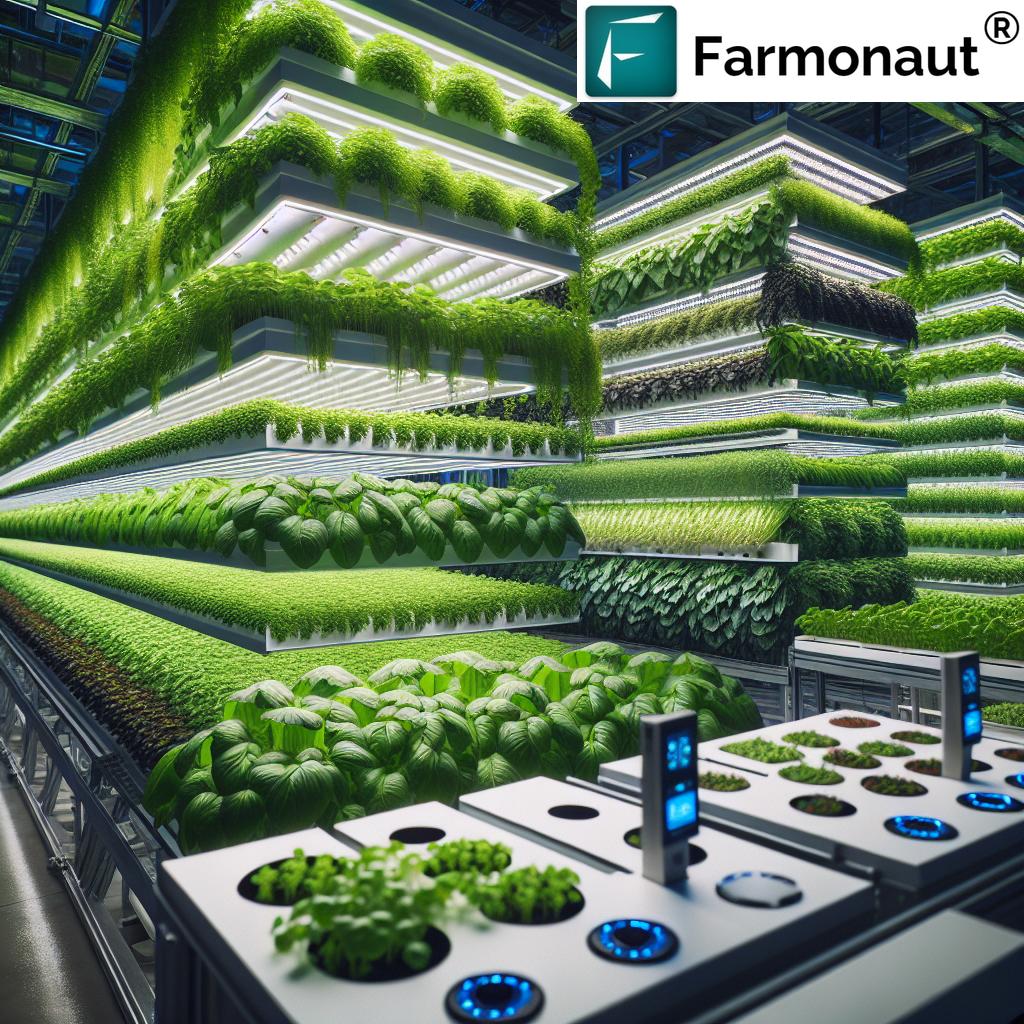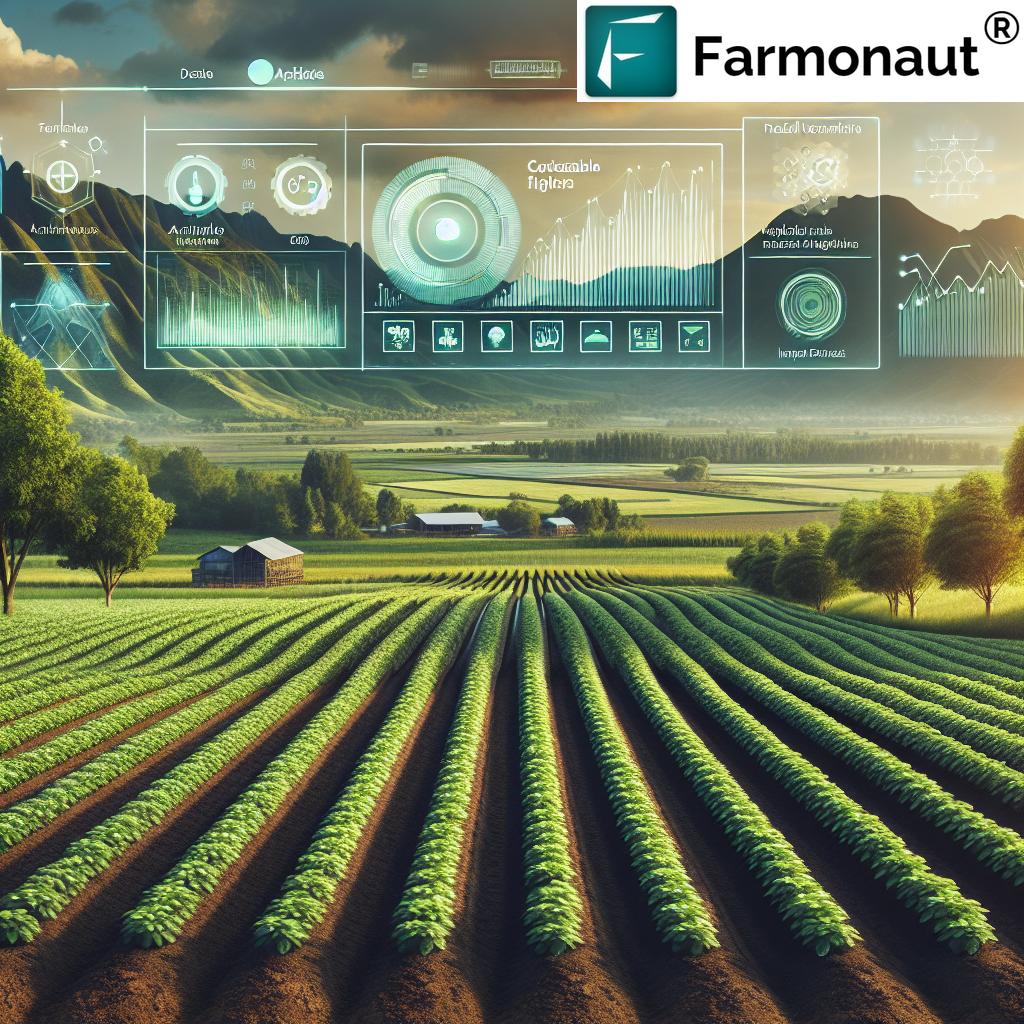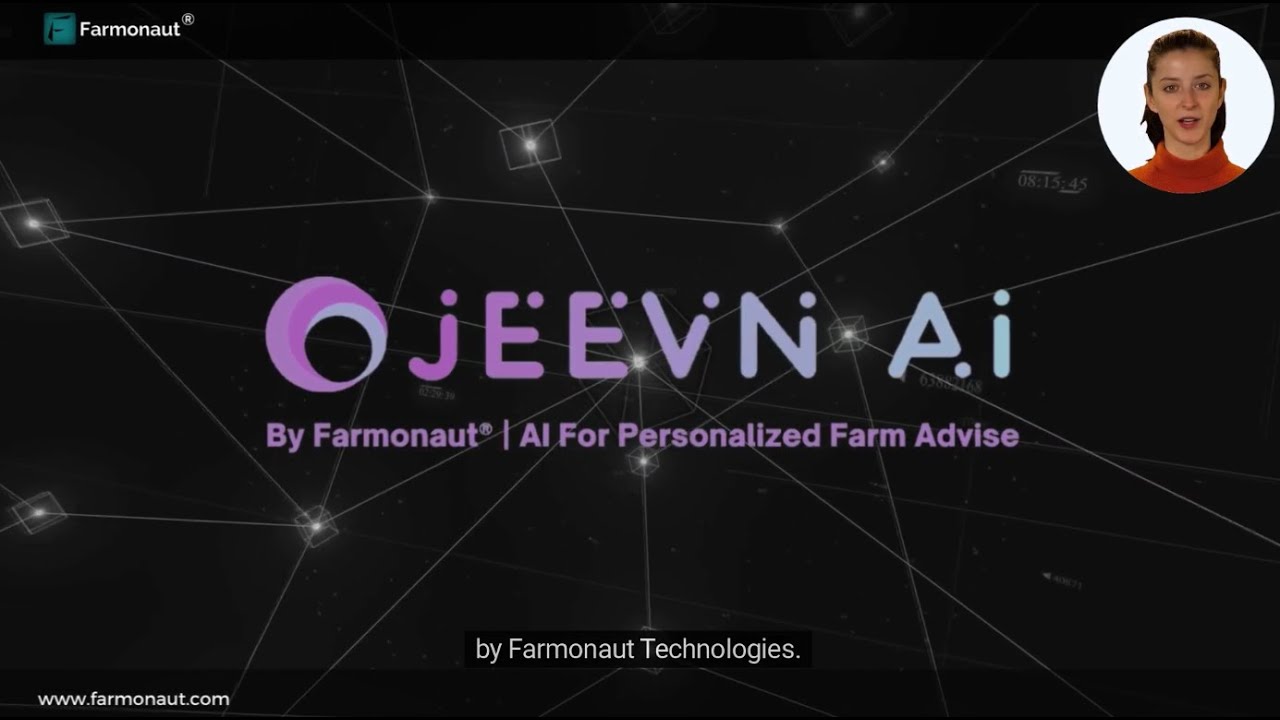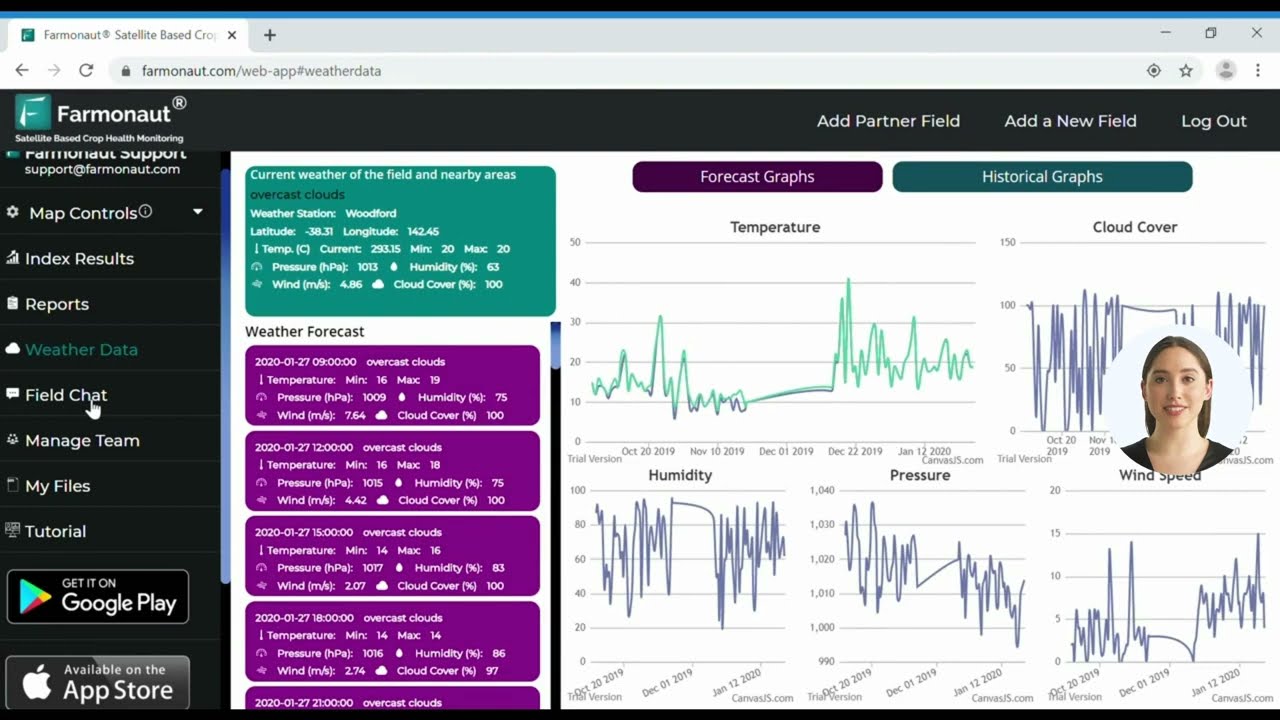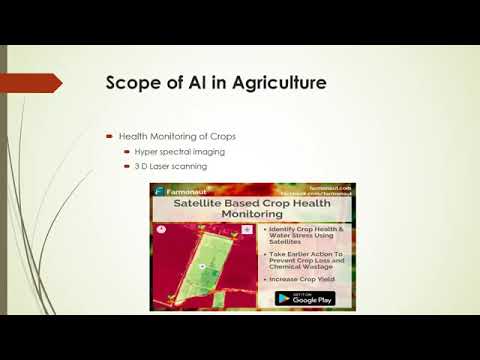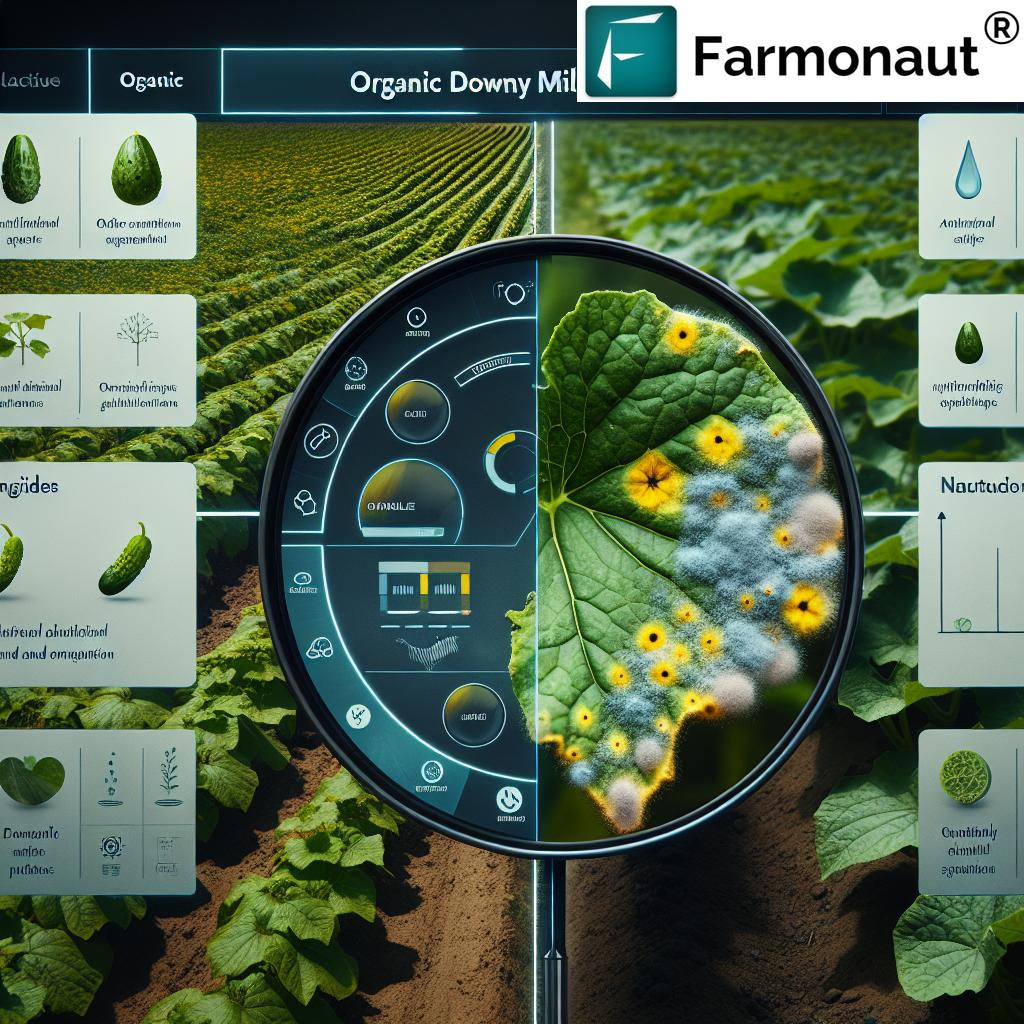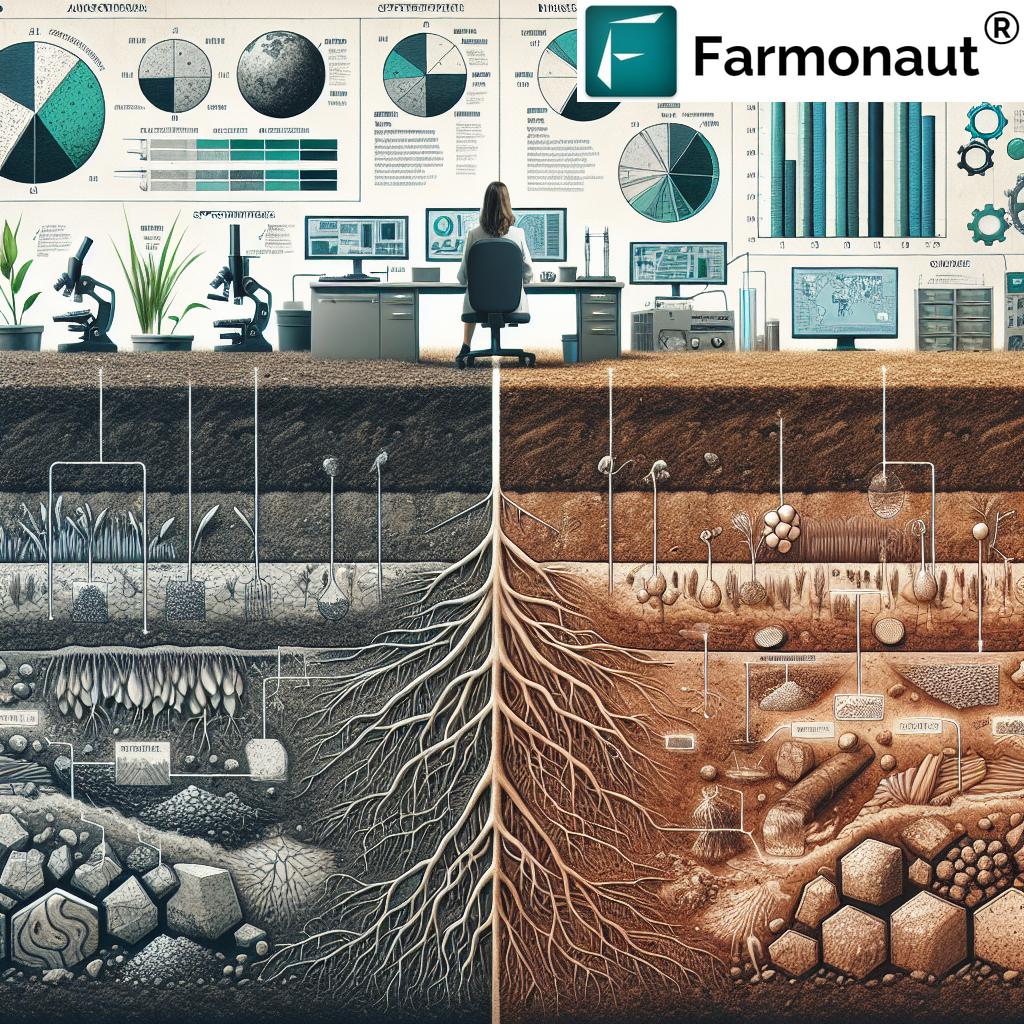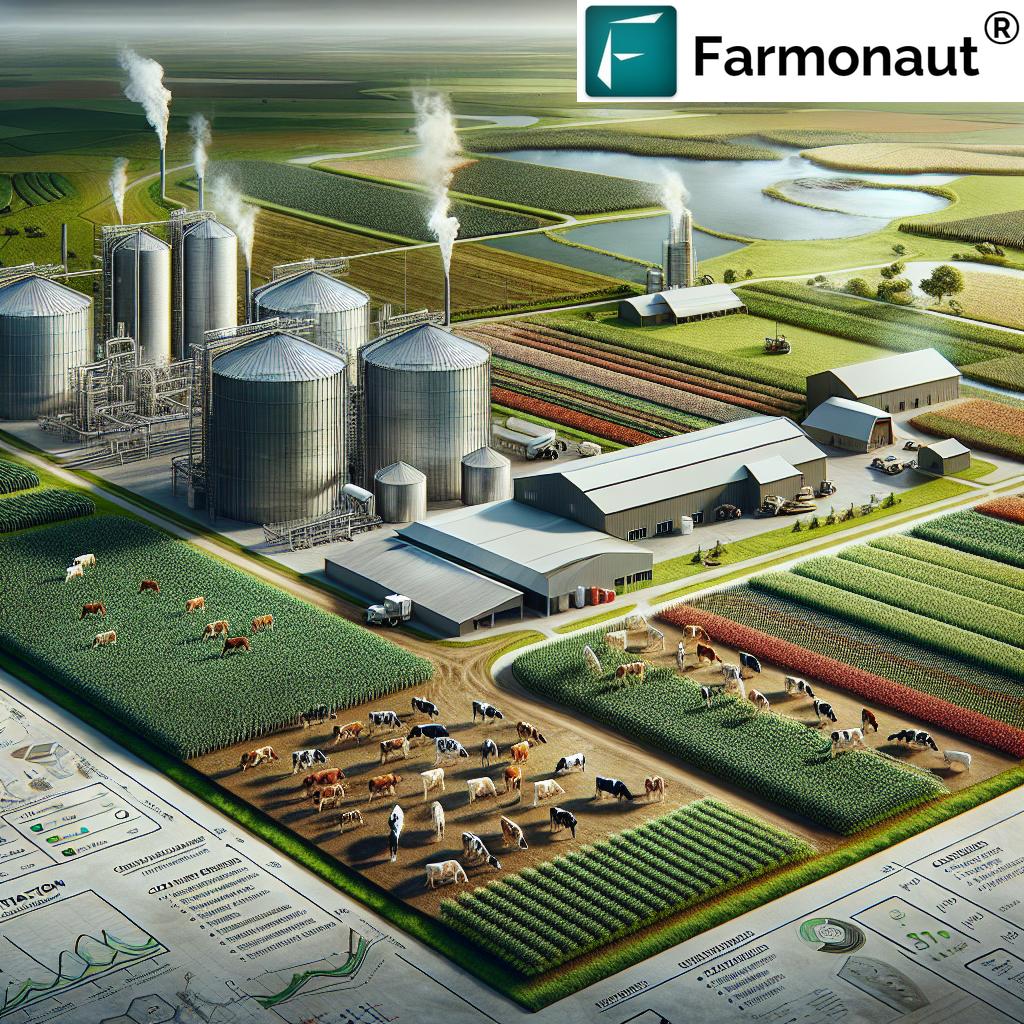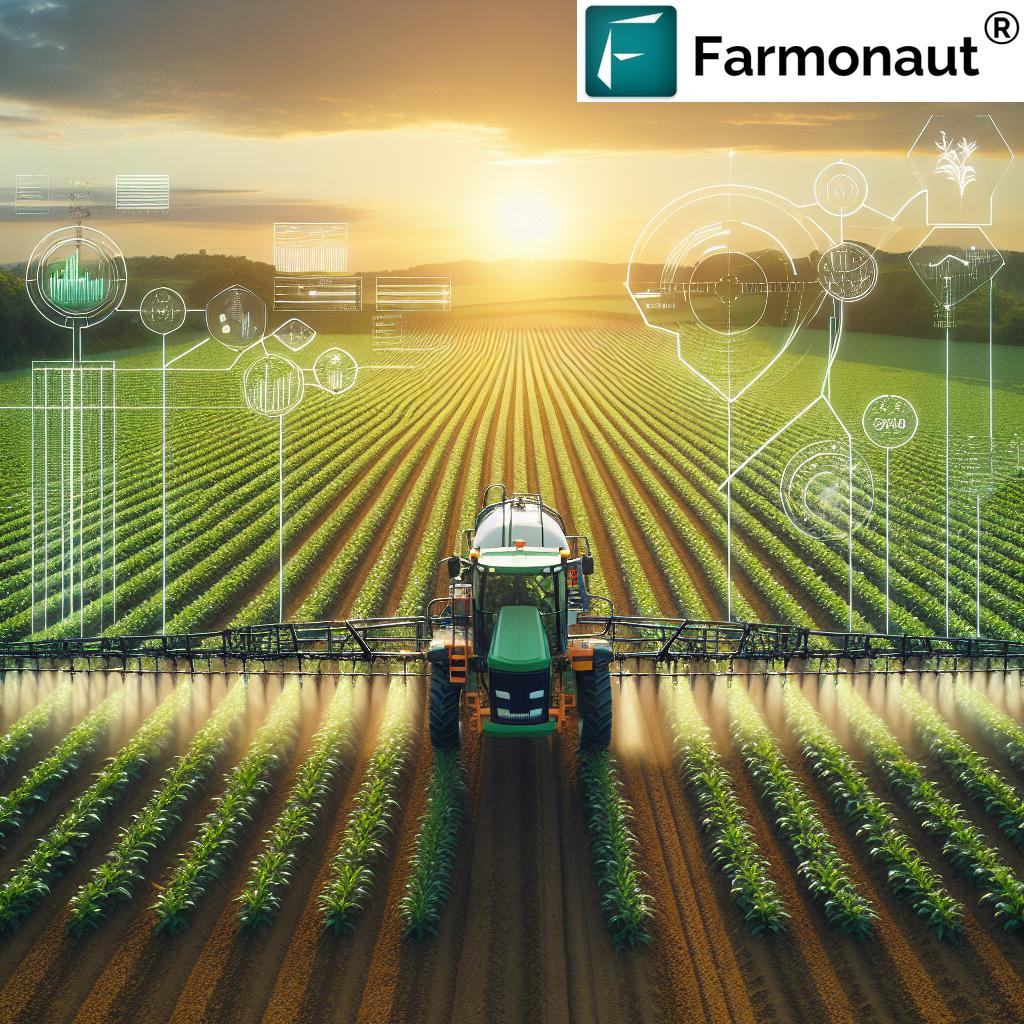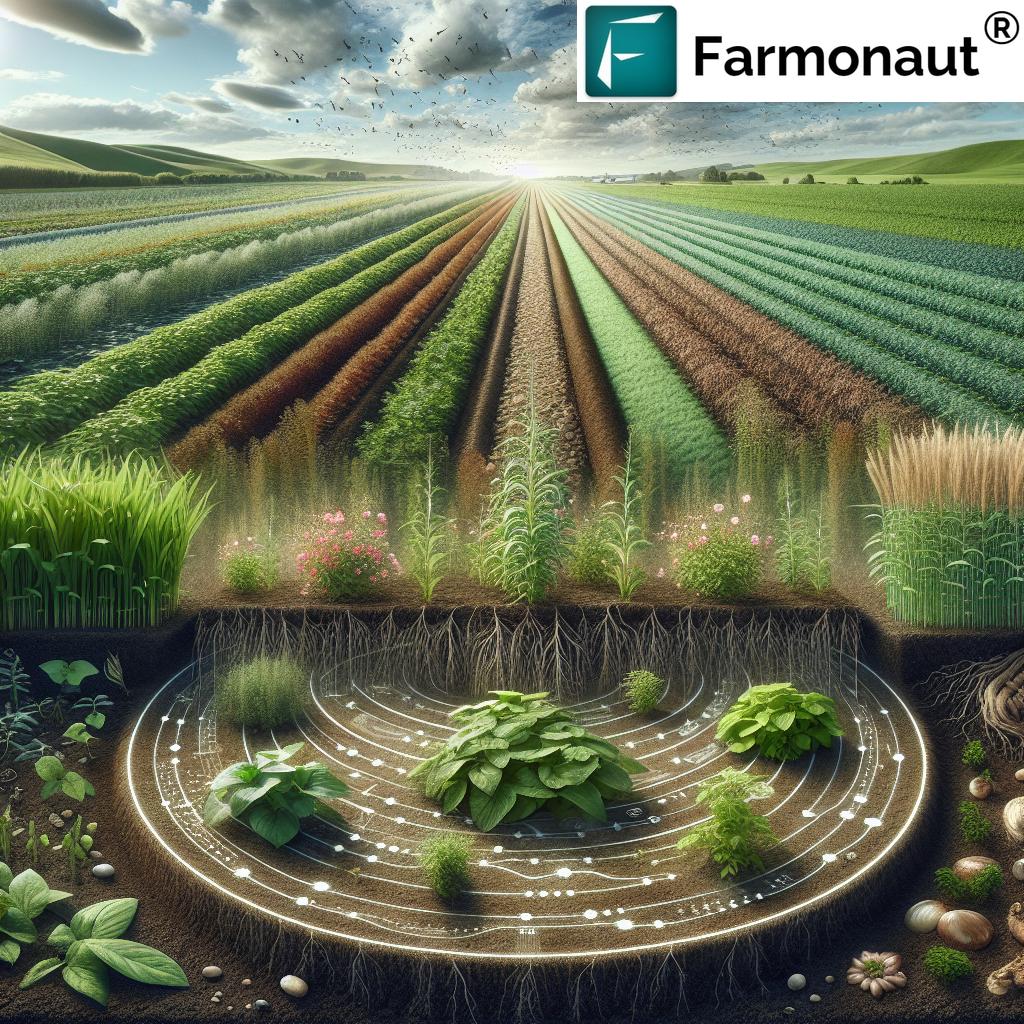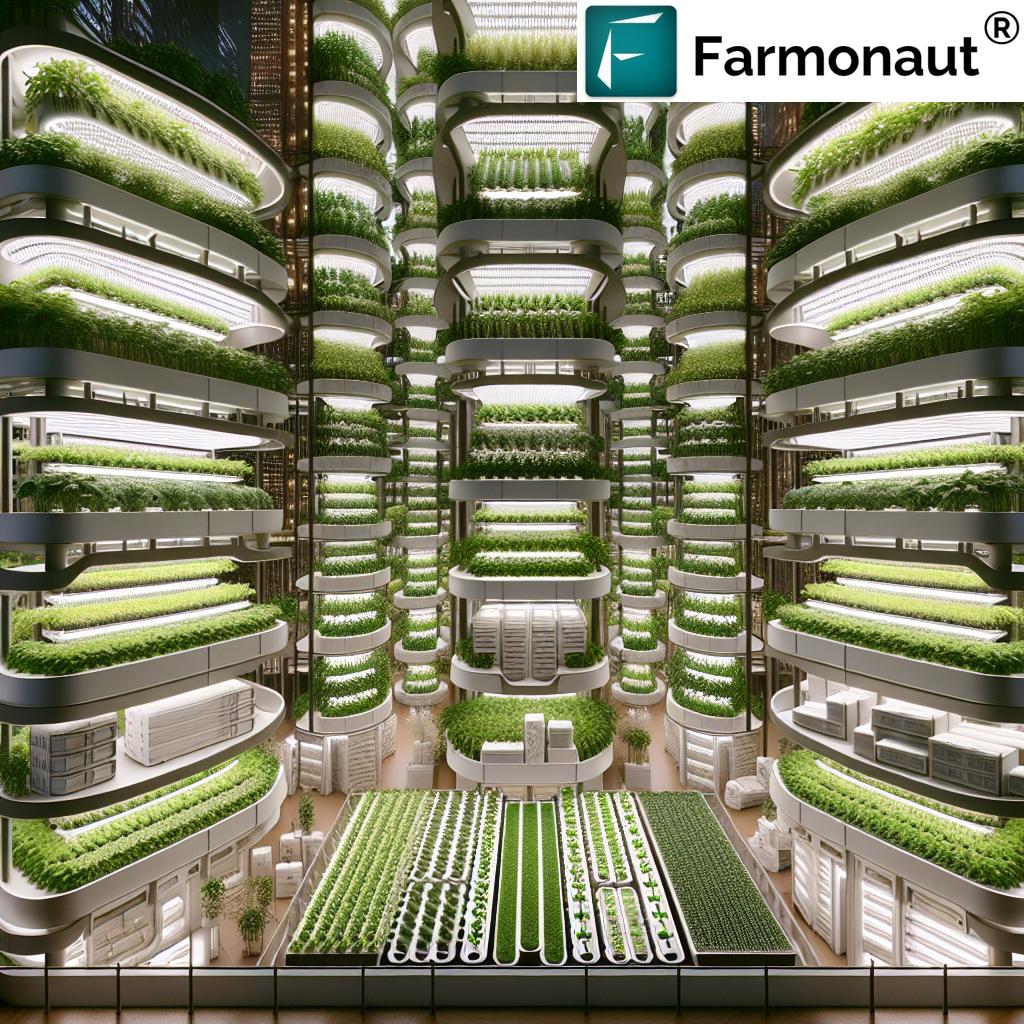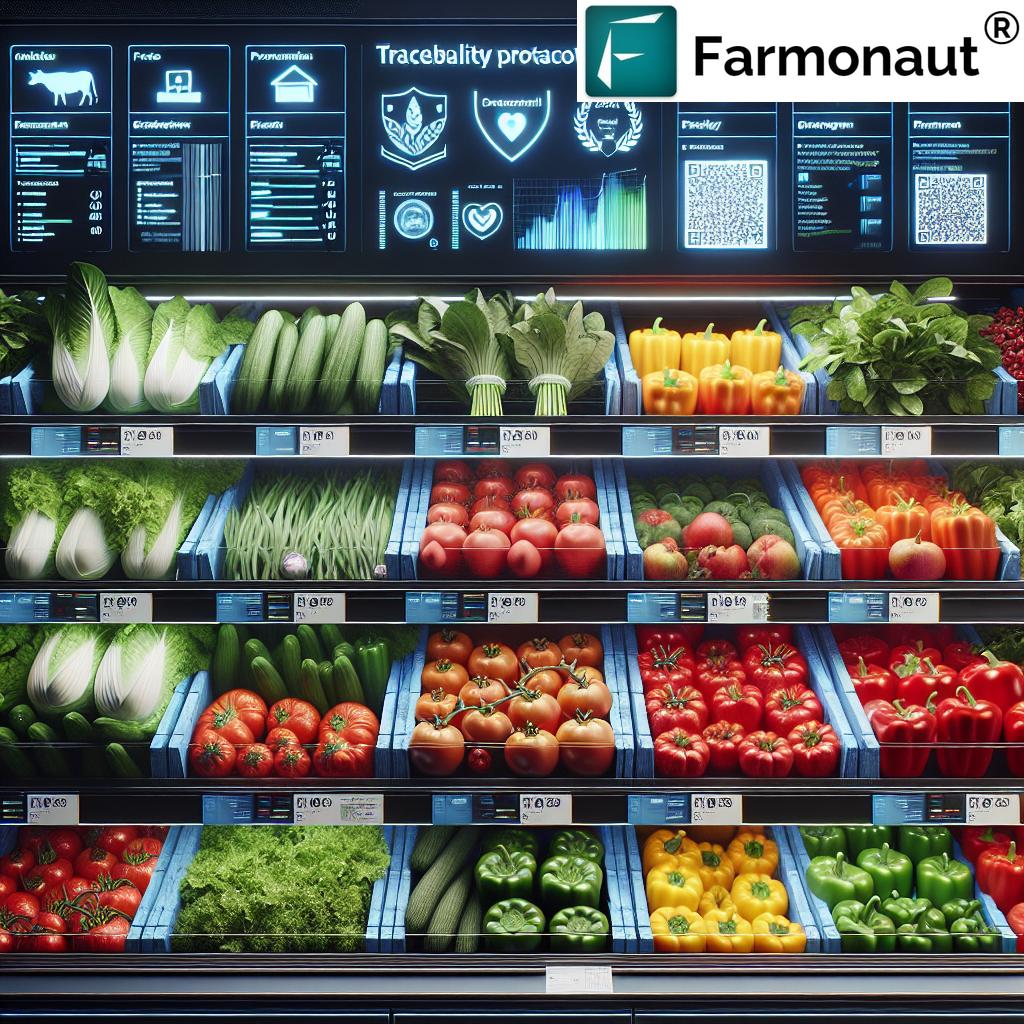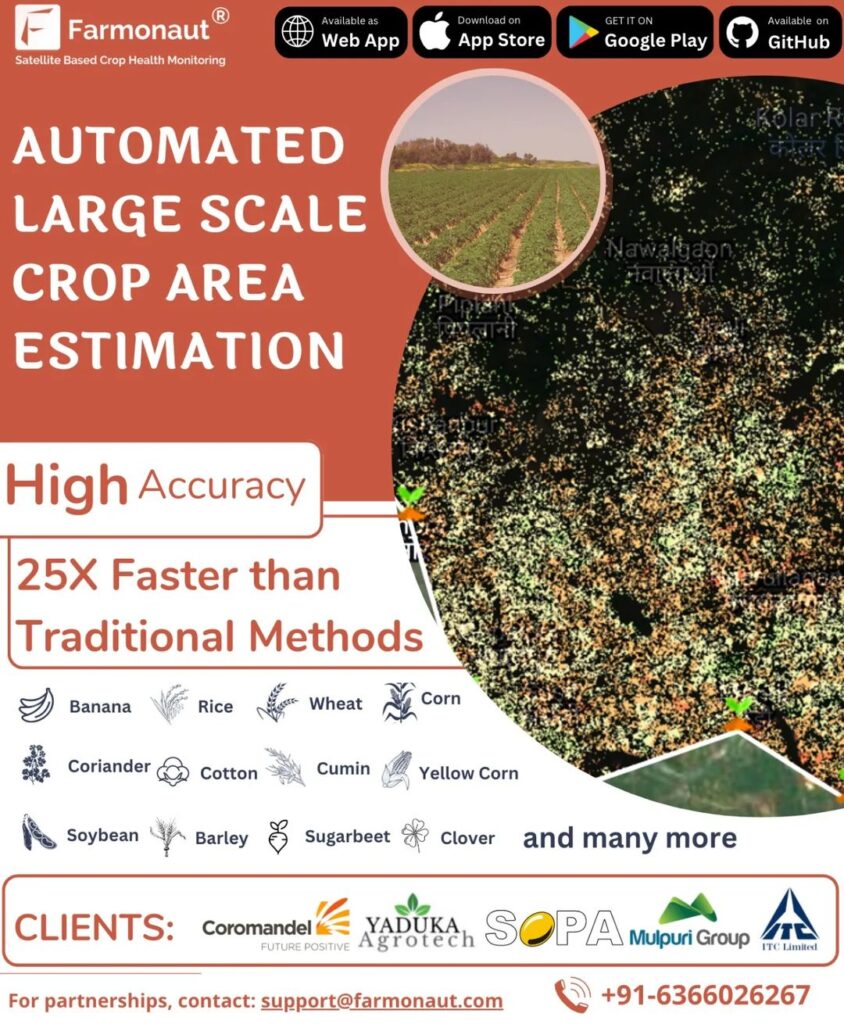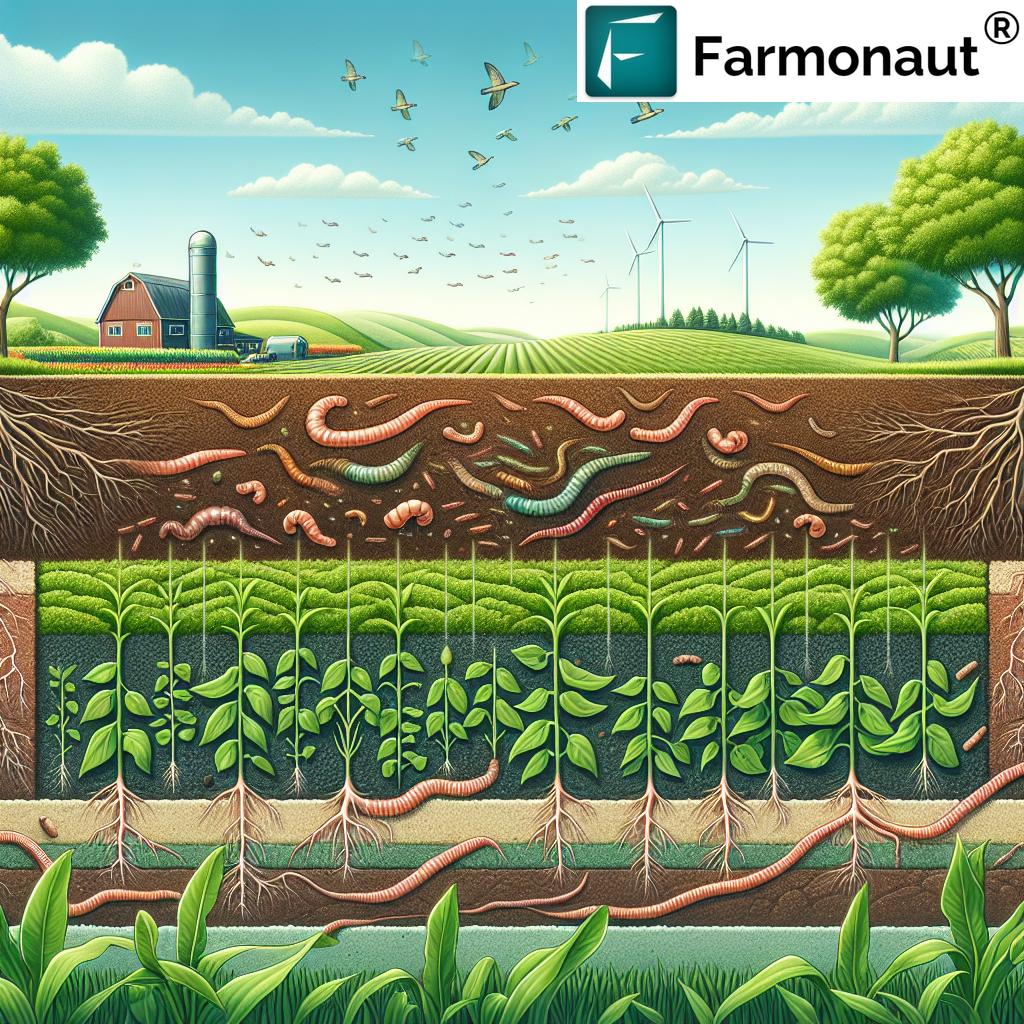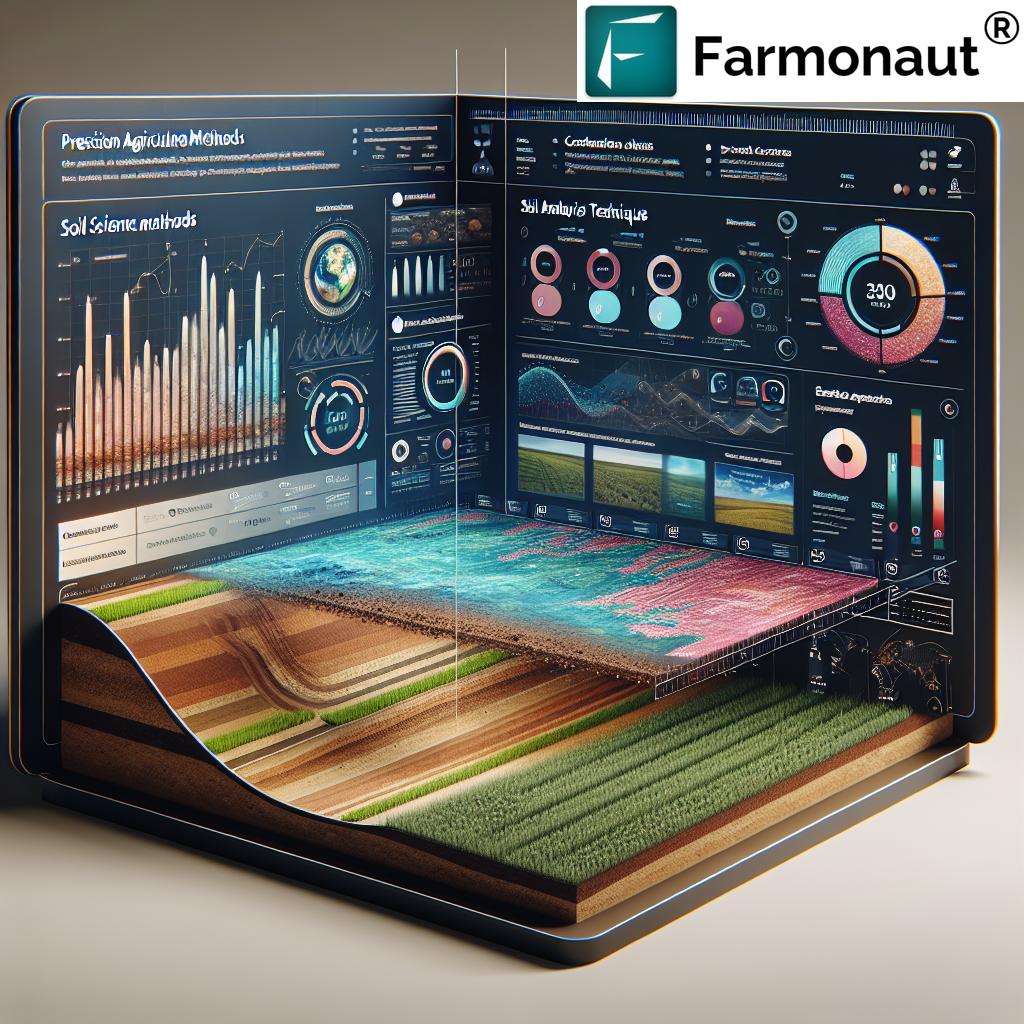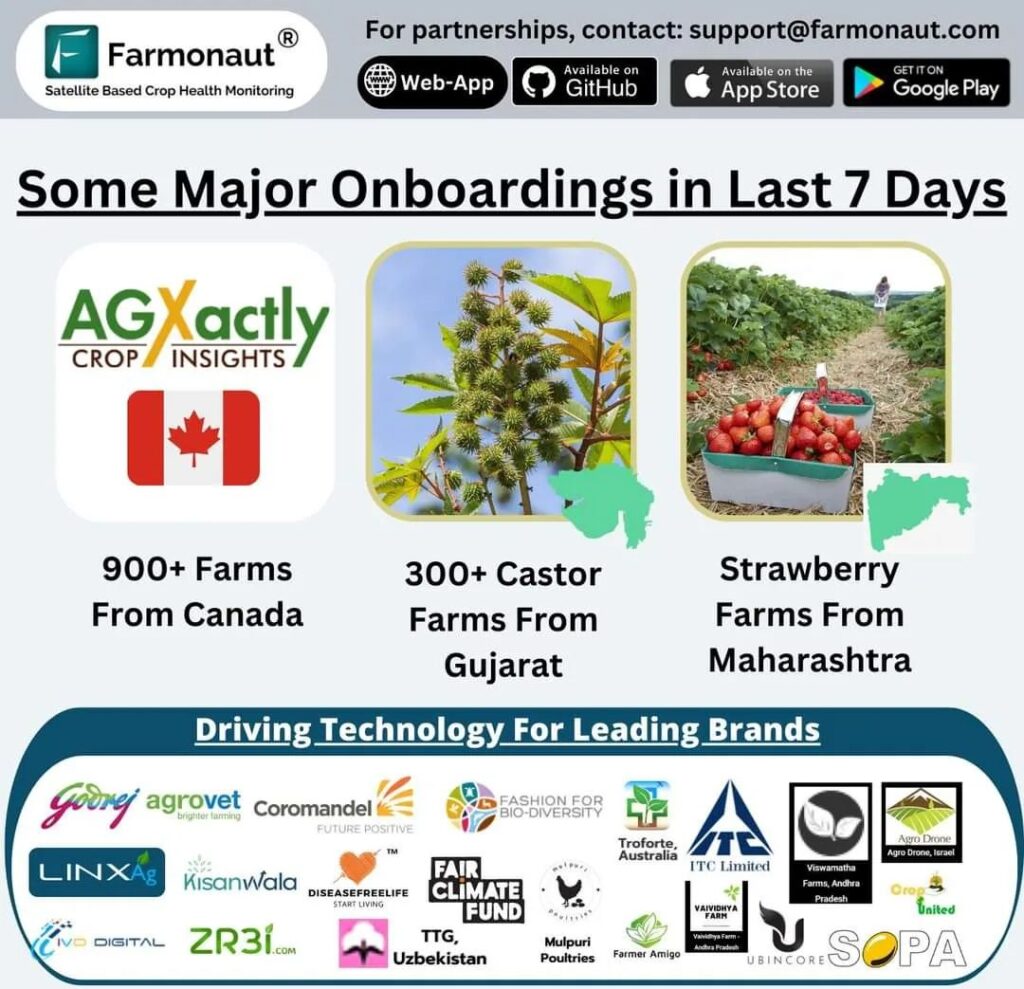Agriculture Startups: 7 AgTech Hacks Revolutionizing Farming
“Over 70% of agtech startups now use AI-powered analytics to optimize crop yields and resource management worldwide.”
Table of Contents
- Summary: Agriculture Startups & AgTech Innovation
- The Emergence and Growth of Agriculture Startups
- 7 AgTech Hacks Revolutionizing Farming
- AgTech Hack Comparison Table
- Impact on Global Agriculture & Sustainability
- Farmonaut: Precision Agriculture for All
- Facing Challenges: Barriers, Adoption, and the Future
- Frequently Asked Questions (FAQ)
- Farmonaut Subscriptions
- Conclusion: The Path Forward for Agriculture Startups
Summary: Agriculture Startups & AgTech Innovation
Agriculture startups are rapidly transforming the farming and forestry sectors worldwide by driving agricultural technology innovation. Leveraging AI, data-driven solutions, and sustainable practices, these ventures tackle the urgent challenges of resource scarcity, climate change, and the demands of a growing global population. Unlike traditional actors, agriculture startups do not manufacture or sell farm inputs, machinery, or serve as regulatory bodies; instead, they catalyze efficiency, sustainability, and transparency in agriculture through novel technology platforms and digital solutions.
In this comprehensive overview, we examine how agtech startups deploy precision agriculture technology to revolutionize traditional farming methods, cut input costs, and improve crop yields. We’ll also highlight game-changing advances, from vertical farming solutions and smart irrigation systems to biological pest control and satellite-powered management software. By understanding these innovations, we gain a vision of a digitally connected, sustainably managed, and more resilient agri-food system.
The Emergence and Growth of Agriculture Startups & AgTech
As the world’s population rises past eight billion, the strain on agricultural resources becomes ever-more acute. Traditional farming methods are challenged by land scarcity, water usage limits, climate change, and unpredictable weather patterns. Agtech startups have emerged as the answer, focusing on technological innovation to drive a new era of efficient, sustainable, and profitable food production.
The term AgTech refers to those agriculture startups and companies at the intersection of technology and food systems. Fueled by the need to feed the world while conserving our soil, water, and ecosystems, these ventures harness artificial intelligence, robotics, machine learning, satellite data, IoT, analytics, and biotechnology to deliver new solutions. Whether in crop monitoring, irrigation management, pest control, or supply chain traceability, AgTech startups are now at the forefront of the agricultural revolution, increasing efficiency and sustainability at scale.
At the heart of their success are three defining trends:
- Integration of AI and satellite data into farm management.
- Automation using robotics and computer vision for routine tasks.
- Analytics-driven optimization of resource usage, from precision irrigation to targeted fertilization—cutting waste and improving crop yields.
7 AgTech Hacks Revolutionizing Farming: How Startups Lead the Way
Let’s explore how seven of the most transformative agricultural technology innovations are being developed by AgTech startups to reshape our farming landscape.
1. Precision Agriculture & Smart Farm Management
Precision agriculture is the science of managing intra-field variability in crops using advanced technology. By collecting vast amounts of data on crop health, soil composition, environmental factors, and weather, farmers can apply the right amounts of water, fertilizers, and pesticides exactly where and when needed. This boosts both productivity and resource efficiency.
- FarmWise develops autonomous robots equipped with AI and computer vision that perform weeding and other repetitive field tasks. Their machines distinguish between weeds and crops, allowing for targeted removal and minimizing herbicide use, which is both eco-friendly and cost-effective. (Learn more)
-
Farmonaut provides affordable, satellite-powered precision agriculture technology via easy-to-use apps and APIs. By allowing growers worldwide—whether in India, Africa, or Australia—to remotely monitor crop health (NDVI), soil moisture, and receive AI-based advisories, Farmonaut democratizes data-driven farm management.
Key platform benefits:- Real-time satellite monitoring for any farm acreage
- AI-driven, personalized advice and weather forecasts for smarter decision-making
- Automatic pest, irrigation, and input management—all without expensive hardware
Try Farmonaut platform now for remote crop health monitoring or explore their API for developers.
Why this is revolutionary: By reducing fertilizer and pesticide input through targeting, precision agriculture helps control costs, cuts environmental impact, and can increase crop yields by up to 30%—all while using fewer resources. Precision agriculture technology is the foundation of climate-smart agriculture.
2. Vertical Farming Solutions: The Rise of Stacked Cultivation
Urbanization, soil limits, and climate volatility have given rise to vertical farming solutions. Here, crops are cultivated in stacked layers inside controlled indoor environments, often using LED lights, advanced hydroponics, and automated farm management.
Stacked Farm in Australia exemplifies the shift. By automating vertical farms to grow herbs and leafy greens year-round with minimal water usage and no pesticides, startups are unlocking food production in urban spaces and arid regions. (Read about Stacked Farm)
-
Advantages:
- Allows city-based production — reducing food miles and boosting food security
- Exceptional resource efficiency — up to 90% less water and land compared to traditional farms
- Year-round harvests regardless of climate or weather
- No chemical pesticides or herbicides needed
Key takeaway: Vertical farming marks a major step toward sustainable farming practices and resilient urban food systems.
3. Smart Irrigation Systems: Optimizing Water Management
Water scarcity is a critical challenge for modern agriculture. Smart irrigation systems integrate sensors, predictive analytics, and AI-powered software to deliver precise, timely water applications that match each crop’s true needs.
- SupPlant — An Israeli startup that has developed hardware and software to monitor soil, crop, and atmospheric conditions in real time. SupPlant’s technology uses multiple sensors and advanced analytics to optimize irrigation, reducing water consumption by up to 70% for many crops. (Read Axios about SupPlant)
-
Smart irrigation’s impact:
- Boosts efficiency — less evaporation loss, more water to roots where it matters
- Increases crop yields and resilience during climate change events, such as droughts
- Reduces overwatering — lowers input costs and prevents nutrient leaching
- Makes farming viable in water-stressed regions
Farmonaut’s JEEVN AI delivers personalized, satellite-driven irrigation management advice directly to farmers’ phones or browsers, ensuring that every drop counts in smart, data-driven agriculture.
4. Biological Pest Control & Integrated Management
Over-reliance on chemical pesticides pollutes the environment, damages beneficial insects, and can harm yields long-term. Biological pest control harnesses natural predators or beneficial insects to manage harmful pests — a core element in sustainable farming.
- UAV-IQ (US-based agtech company) uses drones to release beneficial insects (like ladybugs and parasitoid wasps) over large fields, precisely where pest outbreaks are detected. (About UAV-IQ)
-
Benefits:
- Reduces dependence on chemical pesticides
- Restores ecological balance in farming fields and forests
- Supports organic and regenerative cropping systems
- Minimizes input costs and off-site pollution
Integrating these solutions with AI-powered pest detection (as in some Farmonaut capabilities) makes them even more effective. Explore crop, plantation, and forest advisory tools here.
5. Data Analytics and AI: Data-Driven Farm Management
Today’s agriculture is powered by data analytics and AI. Companies now offer farm management software that integrates satellite imagery, weather data, crop phenology, and market trends, making farming decisions more accurate and less risky.
- CropIn (India) is a standout, delivering SaaS solutions that help growers monitor fields via satellites, determine optimal sowing dates, and manage resource utilization with machine learning. (Read Reuters on CropIn)
-
Farmonaut builds on this model by providing:
- Real-time crop health maps
- Blockchain-based product traceability for food safety and transparency (Traceability benefit details)
- Integrated fleet management and vehicle optimization to cut operational expenses
Bottom line: Data-driven farm management is essential for improving crop yields, reducing input costs, and maintaining transparency in today’s agricultural supply chains.
6. Blockchain Traceability & Agri Supply Chain Security
Food fraud and safety remain major issues in global agriculture. Blockchain technology provides a transparent, tamper-proof way to track every step of a product’s journey from field to fork.
- Farmonaut’s blockchain-based product traceability ensures that all supply chain data — from planting and harvests to distribution and retail — is recorded, verified, and viewable by all stakeholders. This not only increases consumer trust but enables compliance with export and safety regulations.
- Use case example: Textile and food companies use Farmonaut’s traceability platform for secure, authenticated supply chain records.
Main advantage: Blockchain traceability builds food and fiber security for both end-users and producers.
7. Carbon Footprinting & Measuring Sustainable Impact
With agriculture accounting for nearly 20% of global greenhouse gas emissions, sustainability metrics are more important than ever. Carbon footprinting allows farmers, cooperatives, and agribusinesses to monitor, report, and reduce their environmental impacts.
- Farmonaut offers carbon footprint tracking tools that provide accurate, real-time data on emissions at the farm, crop, or field level. Producers can identify high-emissions practices, adopt greener alternatives, and demonstrate progress to regulators, buyers, and consumers.
-
Benefits:
- Helps in meeting export and retail sustainability standards
- Unlocks premium markets and climate-affiliated funding
- Drives data-based improvements in operational sustainability
Takeaway: Agtech startups are delivering climate-smart agriculture solutions, making sustainability measurable and actionable—for both farm management and supply chain reporting.
“Precision agriculture has helped reduce fertilizer use by up to 30% in farms adopting data-driven solutions since 2020.”
Comparative Table: AgTech Hacks, Technologies & Sustainability Impact
Impact on Global Agriculture & Sustainability
The adoption of agtech startup innovations is accelerating across continents:
- In India, CropIn and Farmonaut have demonstrated how satellite data and AI can improve crop yields and farmer incomes while optimizing input use. (Read more)
- Across Africa, initiatives such as the Mount Kenya Sustainable Landscape and Livelihoods programme are marrying local wisdom with modern precision agriculture technology to achieve food security, climate resilience, and landscape restoration. (Read more)
- In Australia and globally, vertical farms are sprouting in cities to offset supply chain risks and reduce transport emissions—transforming urban food systems.
Collectively, agriculture startups are closing the gap toward a sustainable, data-smart, and resilient farming future—supporting both global food security and environmental stewardship.
Farmonaut: Making Precision Agriculture Accessible for All
One major challenger to traditional farming models is Farmonaut, an agtech company with a bold mission: make precision agriculture affordable and accessible to every farmer on the planet. Farmonaut’s focus is on combining satellite analytics, AI, blockchain, and web/mobile software to deliver a modular platform that meets the diverse needs of the global agriculture sector.
Farmonaut Solution Highlights
-
Satellite-Based Crop Health Monitoring:
Monitor entire fields remotely through the Farmonaut app or web dashboard. Real-time maps of crop health, soil moisture, and other critical metrics power smart irrigation, input management, and risk prevention. -
JEEVN AI Advisory System:
Personalized, AI-driven recommendations based on current field status, remote sensing, and hyperlocal weather. Farmers receive actionable advice for fertilizer, irrigation, pest management, and more—directly on their phones. -
Blockchain-Driven Traceability:
Traceability tools for food and industrial supply chain security. Fully transparent recordkeeping from the seed source to final distribution, enhancing consumer trust and brand value. -
Fleet & Resource Management:
Fleet management solutions help agribusinesses optimize movement of machinery, labor, and goods, reducing fuel costs and boosting overall operational efficiency. -
Environmental Sustainability:
Carbon footprinting and sustainability analytics to measure, audit, and lower emissions per unit of production or acreage managed. -
Scalable, Flexible Packages:
Whether you manage one field or an enterprise, Farmonaut’s affordable plans are accessible on Android, iOS, browser, or via API integration for developers.
API documentation: Farmonaut API Developer Docs
Who benefits?
- Individual farmers seeking affordable, precision-driven monitoring and input advice.
- Large agribusinesses optimizing large-scale farm management and logistics at scale.
- Governments and NGOs requiring scalable monitoring tools for food security and environmental policy.
- Food and industry corporates aiming for security, brand value, and traceability in supply chains.
- Financial institutions using Farmonaut’s independent, satellite-based crop verification to support responsible crop loan and insurance assessment.
- Start monitoring your fields with Farmonaut now —click here for immediate app access.
Facing the Challenges: Unlocking the Full Potential of AgTech
While the progress of agtech startups is impressive, their scaling is not without hurdles:
- High Capital Needs: Many digital and robotic solutions require significant upfront investment (though satellite-based SaaS often buck this trend).
- Adoption Barriers: Gaps in digital literacy, technical knowledge, and access to stable internet or electricity impede widespread uptake, especially among smallholders.
- Policy & Infrastructure: Supportive policies, funding, and infrastructure (rural broadband, affordable satellite data) are vital to expand digital agriculture equitably.
- Equitable Access: There is a risk that only well-capitalized farms benefit, exacerbating rural inequality. Solutions like Farmonaut are specifically designed to bridge this inclusion gap, empowering small and mid-scale farmers globally.
- Data Privacy and Security: As data-driven management grows, so does the need for clear data ownership and usage protocols.
We believe overcoming these challenges is key to ensuring that agricultural technology innovation creates positive value for all actors, from field to fork.
Frequently Asked Questions (FAQ): AgTech, Agriculture Startups & Farmonaut
What is an AgTech startup?
An AgTech startup is a company that leverages innovative technologies—such as AI, data analytics, IoT, robotics, or biotechnology—to develop new solutions for farming, forestry, and food systems. These startups drive efficiency, sustainability, and transparency by integrating smart tools and platforms into traditional agriculture practices.
How do precision agriculture technologies improve farm management?
Precision agriculture harnesses field-level data—from satellites or IoT sensors—to apply water, fertilizer, and pesticides only where and when they’re needed. This approach reduces waste, optimizes resource efficiency, lowers input costs, and enhances both yields and sustainability across diverse crops and climatic conditions.
What is Farmonaut and how does it differ from other startups?
Farmonaut is a leading agricultural technology startup providing cost-effective, satellite-powered farm management and advisory solutions. Unlike platforms that require heavy hardware investments, Farmonaut makes precision agriculture and smart management accessible via mobile/web apps and APIs, offering real-time crop monitoring, AI-based advisories, blockchain traceability, and carbon footprint tracking for global users.
How is sustainability measured in agriculture?
Modern agtech solutions use metrics like carbon footprint per hectare, water and fertilizer efficiency, biodiversity impact, and supply chain transparency audits. Tools such as those from Farmonaut allow farms to track emissions, resource usage, sustainability improvements, and compliance with green standards directly from a dashboard.
Are these agtech solutions only for large, commercial farms?
No, solutions like Farmonaut are specifically designed for scalability—from small individual plots to vast agribusiness operations. Their subscription models and API offerings enable affordable entry points for smallholders, cooperatives, banking/insurance, and large organizations alike.
Where can farmers and agribusinesses access Farmonaut’s solutions?
Farmonaut is available on Android, iOS, and web browser apps, and can be integrated into third-party systems via API for research or enterprise use. Try Farmonaut here, or explore API documentation.
Farmonaut Subscription Options
Farmonaut offers a range of subscription plans tailored to the needs of individual farmers, cooperatives, agribusinesses, and government agencies. Pricing is based on the number of hectares, update frequency, and feature sets required. Integrations and bulk options are also available for enterprise clients.
Conclusion: The Path Forward for Agriculture Startups & AgTech
Agriculture startups are fueling one of the most profound technological revolutions in the global farming and forestry sectors. By harnessing AI, satellite technology, data analytics, and sustainable practices, these ventures are addressing critical challenges—resource scarcity, climate change, and food security—for a growing population.
By integrating precision agriculture technologies, vertical farming solutions, blockchain traceability, and carbon footprinting, agtech startups such as Farmonaut are opening new doors for scalable, affordable, and inclusive innovation. Their commitment to making sustainable farming practices accessible globally is a cornerstone for food, economic, and environmental resilience in the 21st century.
As we embrace these innovations, it is now possible for every farm—regardless of size, location, or resources—to thrive in a digitally connected, efficient, and sustainable agriculture future.
Start your journey toward smarter, more sustainable farming — Get started here with Farmonaut today.
Ready to empower your agriculture management with technology? Explore Farmonaut’s API for agricultural developers here.
Want detailed solutions for traceability, carbon accounting, or fleet tracking?
Carbon Footprinting |
Product Traceability |
Fleet Management |
Large Scale Farm Management |
Crop Loan & Insurance


